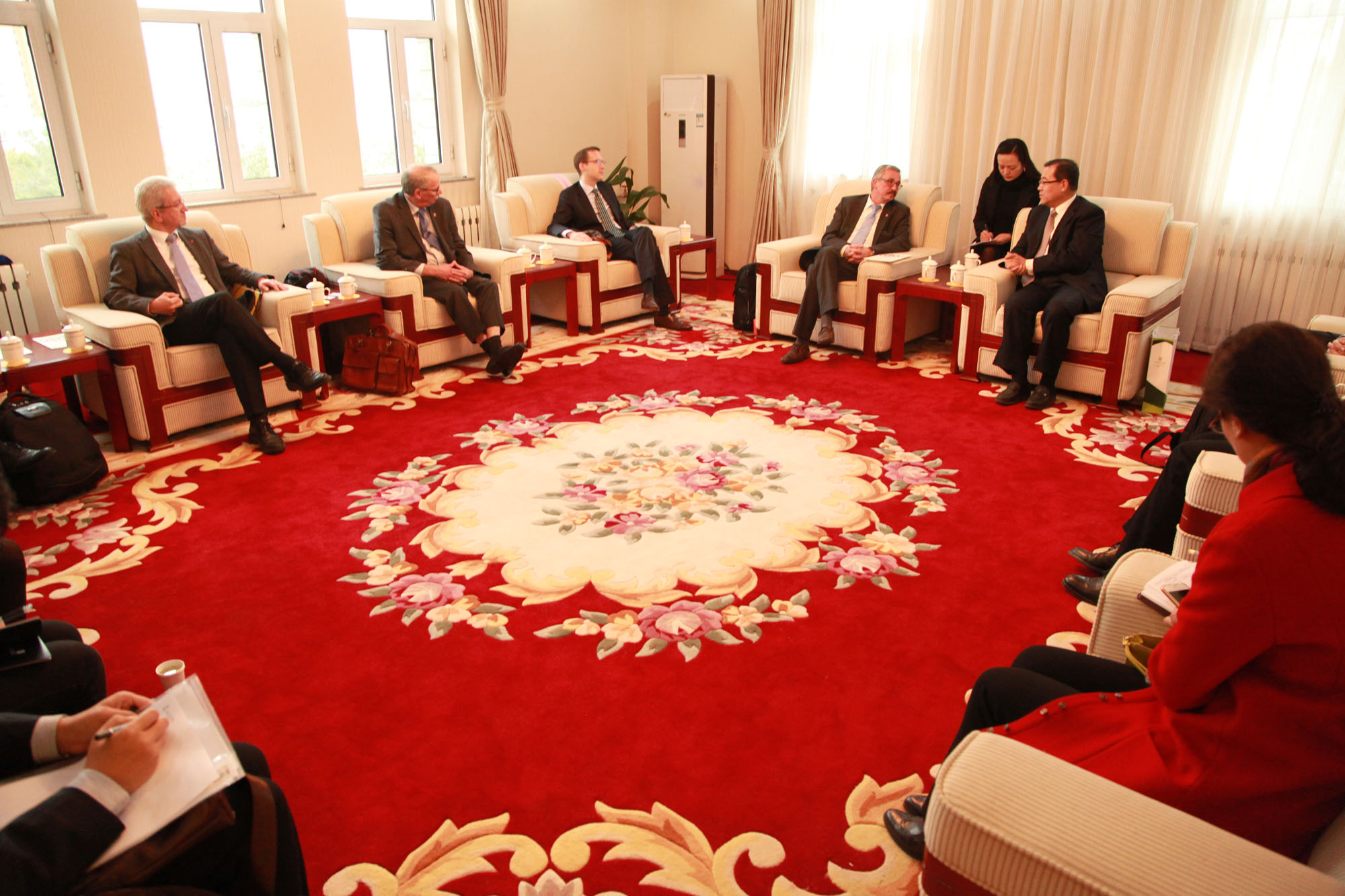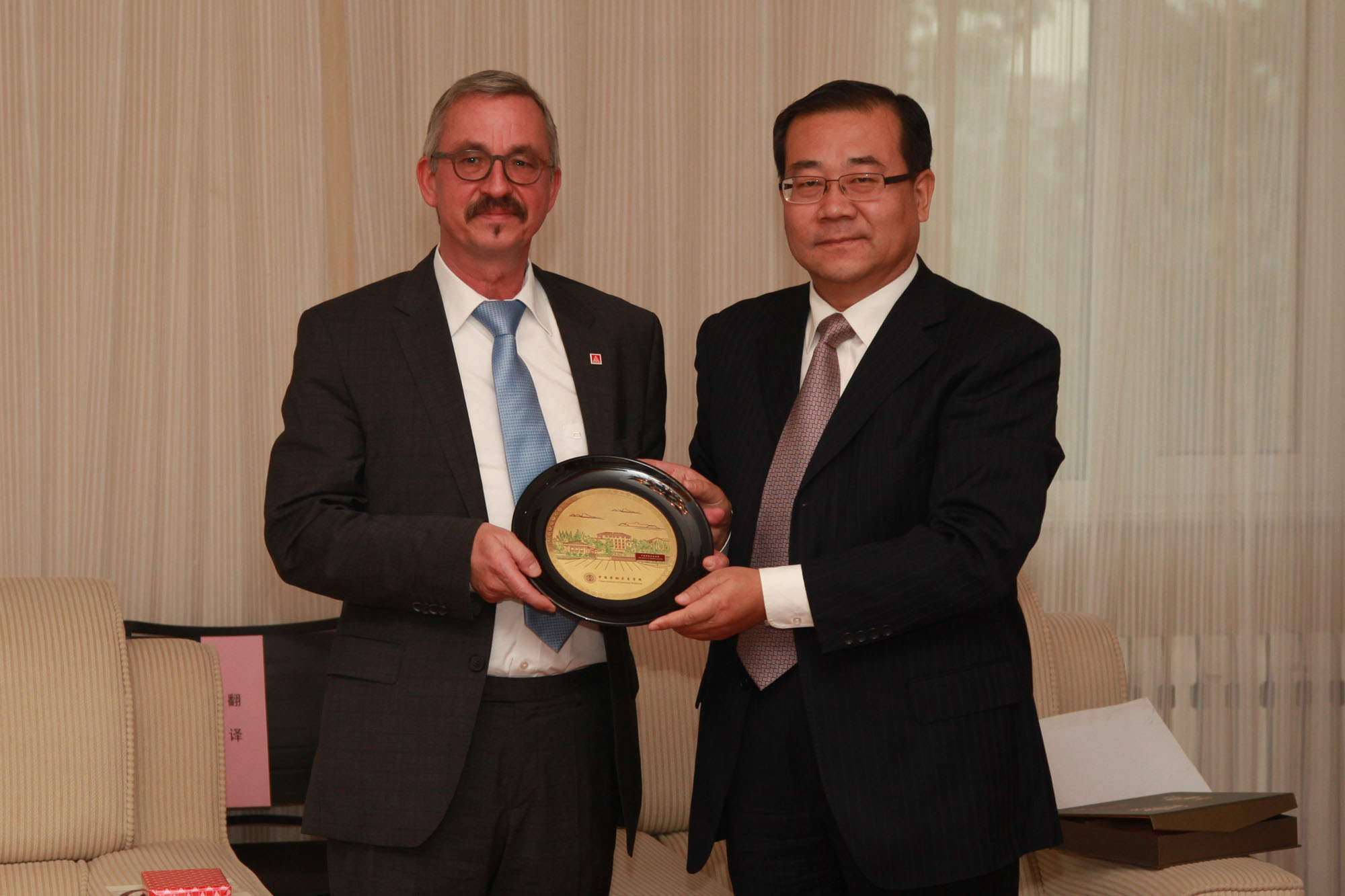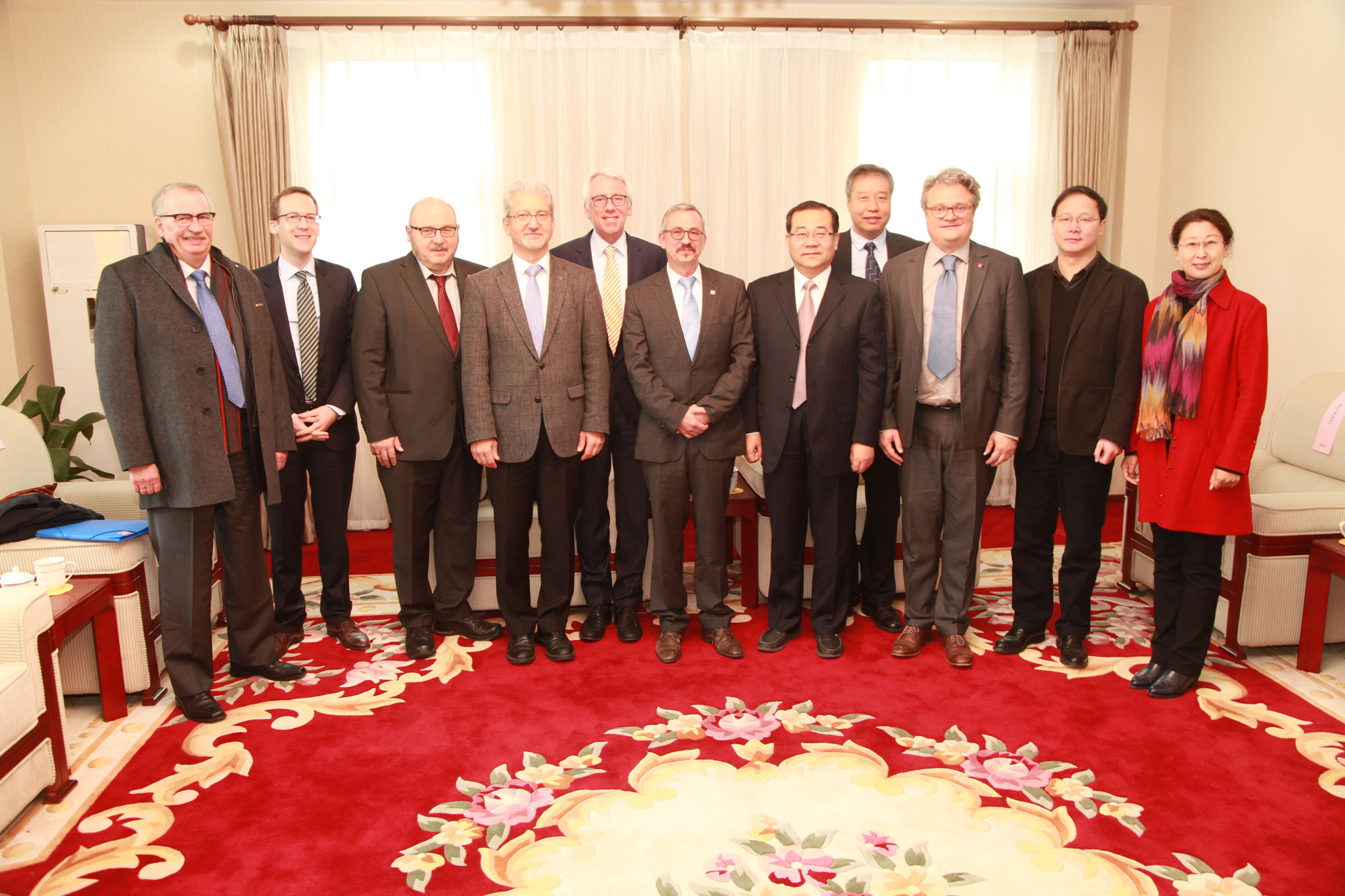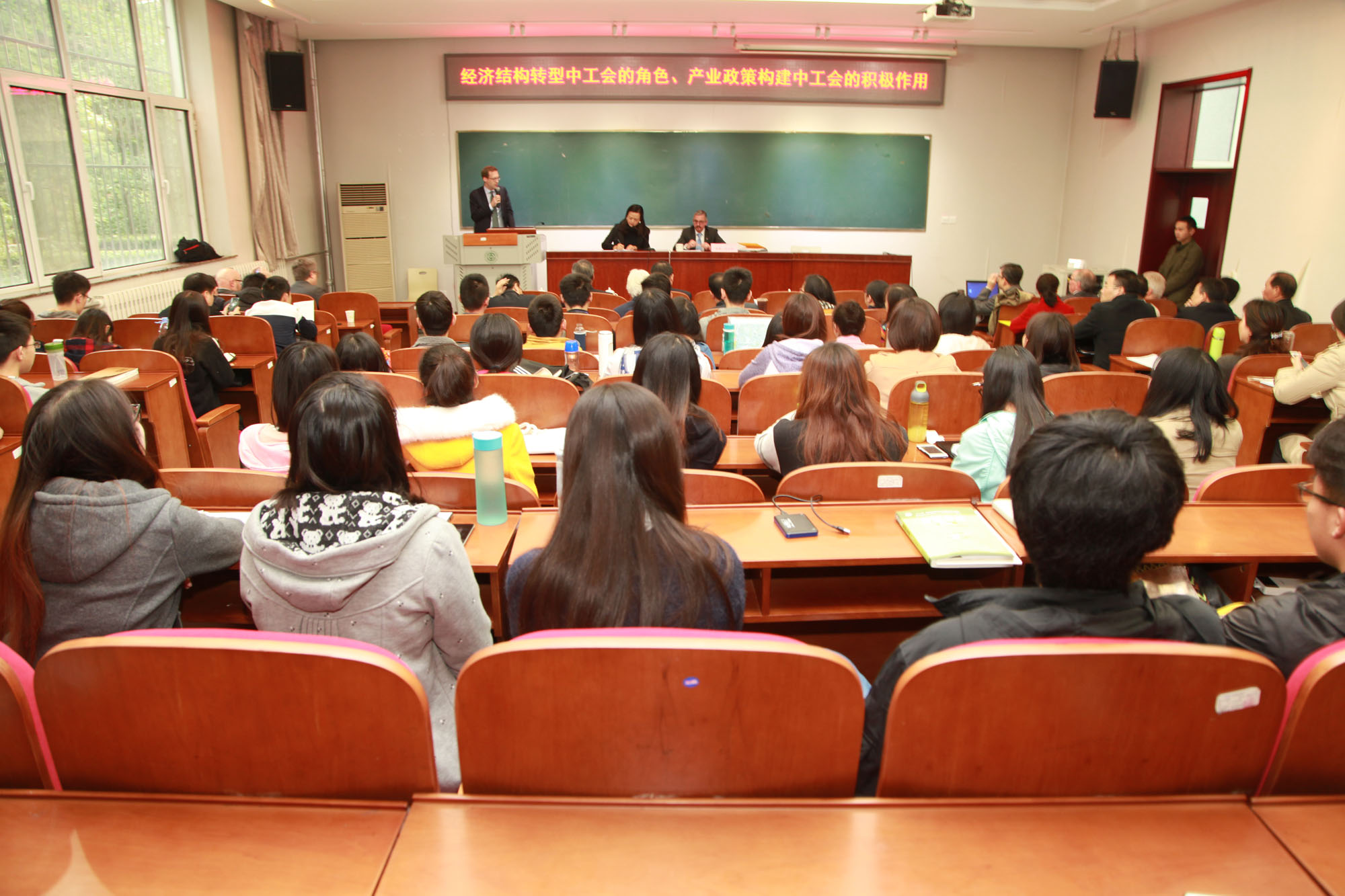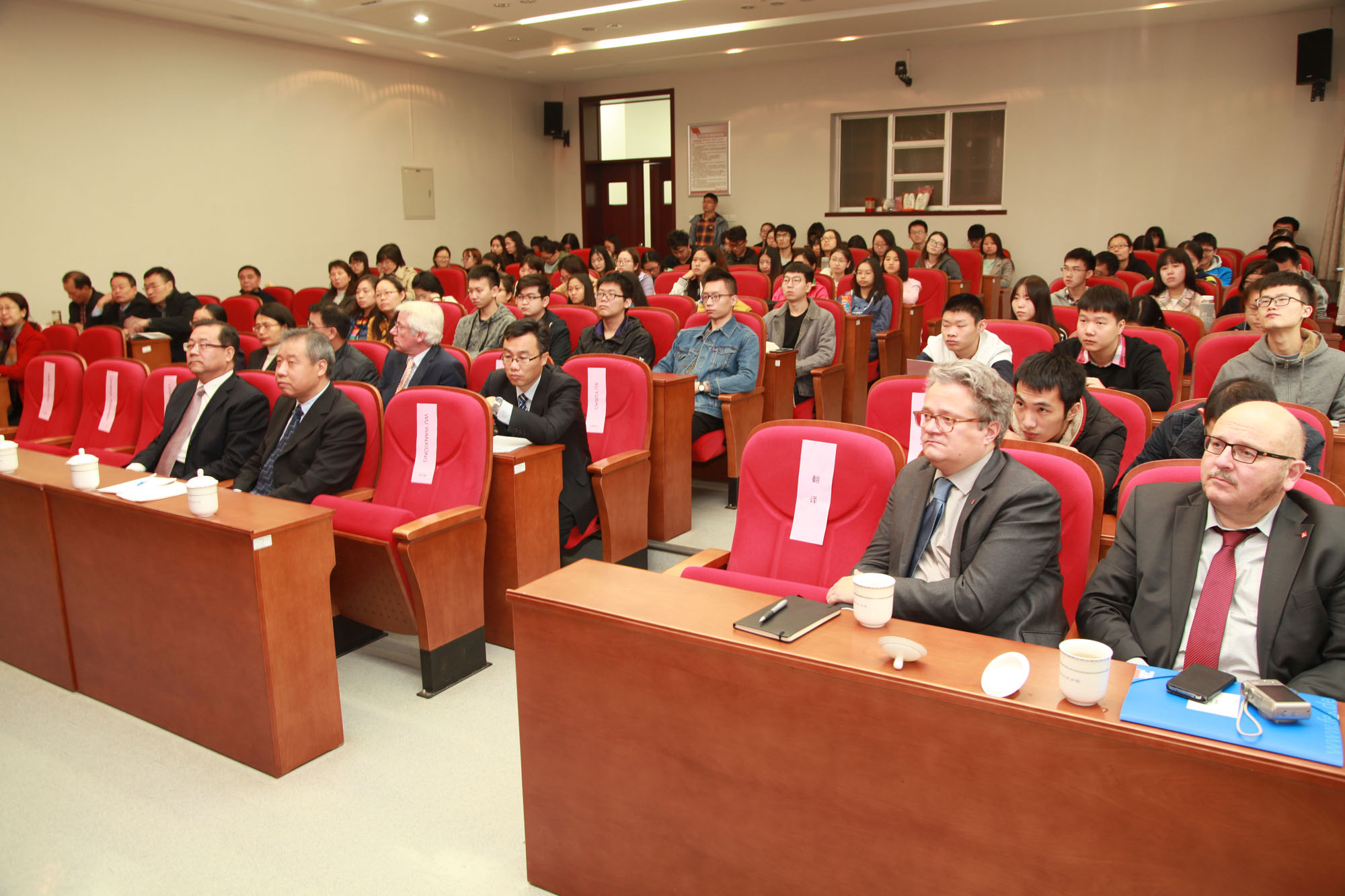On the morning of October 27, a delegation of nine, led by Lemb Wolfgang, a full-time member of the Executive Committee and Executive Vice Chairman of IG Metall, visited our university, accompanied by Xu Enyi, Deputy Director-General of the International Department of the All-China Federation of Trade Unions (ACFTU). President Liu Xiangbing, Vice President Wu Wanxiong and heads of relevant departments met with the German guests and held talks in the VIP room. At the invitation of the ACFTU, Executive Vice Chairman Lemb Wolfgang and his delegation visited China and made a special trip to our university for investigation and exchange.
During the talks, President Liu Xiangbing first extended a warm welcome to Vice Chairman Lemb Wolfgang and his delegation. He said that as an ordinary university directly under the ACFTU, our goal is to build an important base for cultivating talents needed in labor relations, trade unions and related fields, the highest institution for training trade union cadres, and a high-end think tank for research in the field of labor relations and trade unions. In order to achieve this goal, the CULR actively promotes exchanges and cooperation with internationally renowned trade union organizations. IG Metall and our university have maintained close and friendly exchanges for a long time. It is hoped that this visit can enhance mutual understanding, learn from each other and promote each other in trade union work. During the talks, Vice Chairman Lemb Wolfgang thanked President Liu Xiangbing and the university for their warm reception of the delegation. He said that Germany and China face similar social problems in the process of industrial development and economic transformation. He attached great importance to his visit to our university and hoped to exchange experience in trade union organizations participating in economic transformation and safeguarding workers' rights and interests. President Liu Xiangbing was invited to visit IG Metall at an appropriate time.
After the talks, Vice Chairman Lemb Wolfgang gave a keynote report entitled "The Role of Trade Unions in the Transformation of Economic Structure and the Positive Role of Trade Unions in the Construction of Industrial Policies" to the teachers and students of our university in Lecture Room 1 of Beijing Campus. The report was presided over by Associate Professor Qiao Jian, Director of the School of Labor Relations and Human Resources. In his speech before the report, President Liu Xiangbing pointed out that Mr. Lemb Wolfgang is a senior leader of the IG Metall, and his practical experience and theoretical exploration will provide an important reference value for our trade union work in the new normal economy, supply-side reform, economic restructuring and industrial policy construction.
In his report, Mr. Lemb Wolfgang introduced the historical role played by IG Metall in the transformation of Germany's economic structure, especially after the 2008 financial crisis. By adhering to and restoring the industrial value concept of the importance of the manufacturing industry, establishing a tripartite alliance of labor, capital, and government, and putting forward specific plans from the level of national policies, local policies and even EU policies, it exerts influence on economic policies and protects workers' rights and interests from the source of industrial policies. He stressed the importance of the system of employee representatives and co-determination in enterprises, and pointed out that trade unions should concentrate on two primary tasks: ensuring good employment positions and maintaining a well-trained workforce.
During the interactive session, young teachers from our university and trainees from the county-level union chairmen class actively engaged with Lemb Wolfgang, creating a lively atmosphere. In his final comments, Associate Professor Qiao Jian pointed out that Germany pays attention to the development of real economy, the co-determination system of German trade unions from central to local levels, and the concept of justice and sharing in industrial restructuring are worth learning from for China.
Founded in October 1949, IG Metall has 2.27 million members. It is the largest industrial union in Germany and the most important industrial union under the German Trade Union Confederation. The results of its collective bargaining with employers directly affect the wage level of the German manufacturing industry, making it a bellwether for labor negotiations in European countries. IG Metall is also an important member of the International Metalworkers' Federation, with its leaders holding key positions in the latter for many years.
(Foreign Affairs Office, Department of Scientific Research, Academic Affairs Office)

